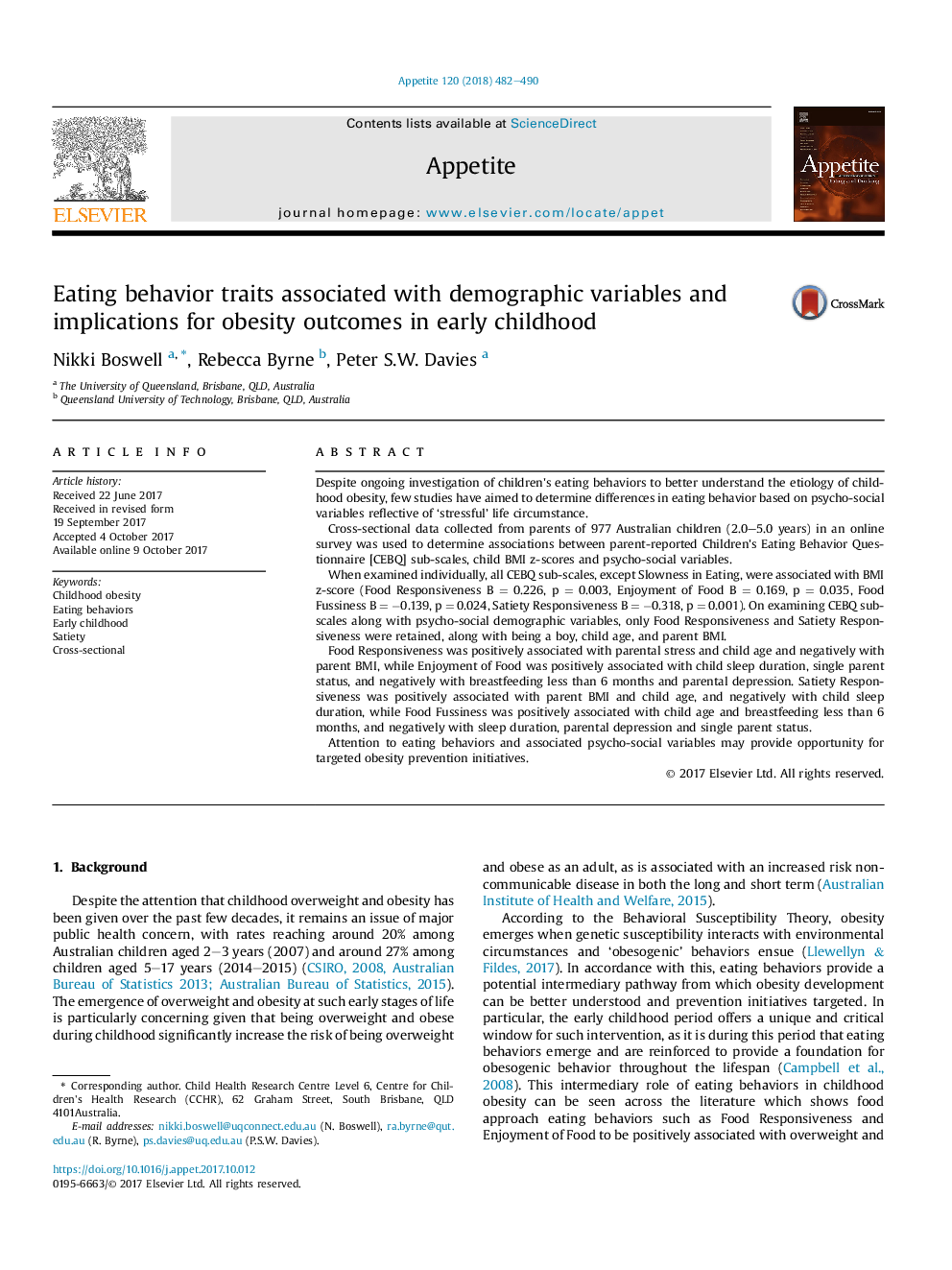| کد مقاله | کد نشریه | سال انتشار | مقاله انگلیسی | نسخه تمام متن |
|---|---|---|---|---|
| 5043961 | 1475360 | 2018 | 9 صفحه PDF | دانلود رایگان |
Despite ongoing investigation of children's eating behaviors to better understand the etiology of childhood obesity, few studies have aimed to determine differences in eating behavior based on psycho-social variables reflective of 'stressful' life circumstance.Cross-sectional data collected from parents of 977 Australian children (2.0-5.0 years) in an online survey was used to determine associations between parent-reported Children's Eating Behavior Questionnaire [CEBQ] sub-scales, child BMI z-scores and psycho-social variables.When examined individually, all CEBQ sub-scales, except Slowness in Eating, were associated with BMI z-score (Food Responsiveness B = 0.226, p = 0.003, Enjoyment of Food B = 0.169, p = 0.035, Food Fussiness B = â0.139, p = 0.024, Satiety Responsiveness B = â0.318, p = 0.001). On examining CEBQ sub-scales along with psycho-social demographic variables, only Food Responsiveness and Satiety Responsiveness were retained, along with being a boy, child age, and parent BMI.Food Responsiveness was positively associated with parental stress and child age and negatively with parent BMI, while Enjoyment of Food was positively associated with child sleep duration, single parent status, and negatively with breastfeeding less than 6 months and parental depression. Satiety Responsiveness was positively associated with parent BMI and child age, and negatively with child sleep duration, while Food Fussiness was positively associated with child age and breastfeeding less than 6 months, and negatively with sleep duration, parental depression and single parent status.Attention to eating behaviors and associated psycho-social variables may provide opportunity for targeted obesity prevention initiatives.
Journal: Appetite - Volume 120, 1 January 2018, Pages 482-490
